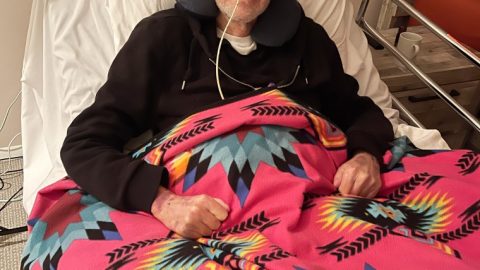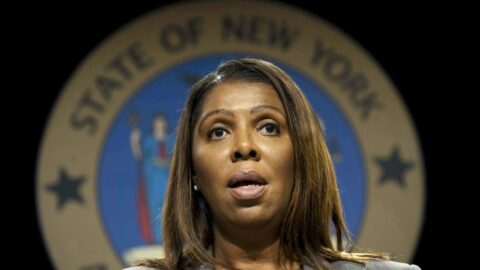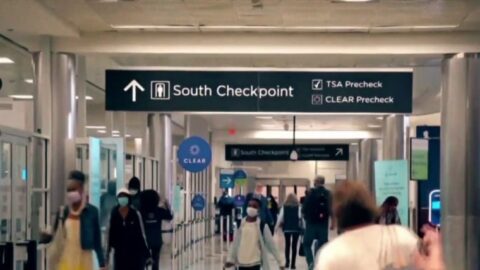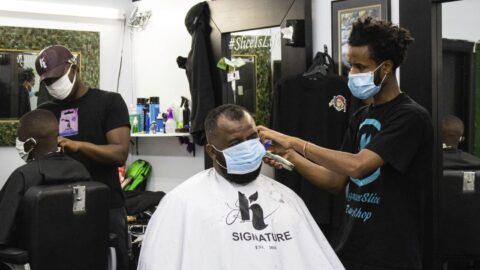Ahead of the 24th anniversary of 9/11, Democrats are demanding answers from Health Secretary Robert F. Kennedy Jr. about the future of the federal World Trade Center Health Program, which covers treatment for 9/11-related illnesses such as cancer and chronic coughs.
In a letter to Kennedy on Wednesday, obtained exclusively by NBC News, six Democratic senators expressed concern that the program was not abiding by a mandate to evaluate whether additional health conditions should be eligible for the program’s medical coverage.
Over the last eight months, the program has been plagued by funding shortages and staffing cuts (some staffers have been fired and rehired multiple times), leading to sometimes monthslong wait times for survivors seeking appointments, which can delay critical, life-saving diagnoses and treatment.
The attacks on the Twin Towers and the Pentagon released toxic debris and chemicals that have been linked to a range of health issues, including asthma, leukemia and prostate and thyroid cancers. The World Trade Center Health Program covers the cost of monitoring and treatment of these illnesses both for 9/11 responders and for people who lived, worked or attended school or day care in the disaster area. Some people join the program after illnesses have developed, while others join to receive annual screenings that could detect illnesses early.
By the end of last year, the federal program had set a March deadline to decide whether to include certain autoimmune, cardiac and cognitive conditions in its list of covered illnesses — but that deadline came and went, the senators wrote in their letter.
The conditions under consideration included lupus, rheumatoid arthritis, stroke, obstructive coronary artery disease and young-onset dementia, according to petitions submitted by doctors involved in the program.
“This delay in recognizing new health conditions tied to exposures received at Ground Zero, at Shanksville, and at the Pentagon harms the ability of the first responders who heroically responded to 9/11 to get the health care they need and are entitled to,” the senators wrote.

They added that the delay “also calls into question whether there are other elements of the program that are not being completed, such as enrolling newly-eligible members, conducting surveillance and research to support the addition of new health conditions, and public communication around this work.”
The senators — Sen. Andy Kim, D-N.J., Sen. Chuck Schumer, D-N.Y., Sen. Kirsten Gillibrand, D-N.Y., Sen. Richard Blumenthal, D-Conn., Sen. Tim Kaine, D-Va. and Sen. Cory Booker, D-N.J. — represent states whose residents were directly impacted by 9/11.
They asked Kennedy to provide answers to questions about the status of the program by Oct. 10, including updates on the number of staffers that remain and how many new members have been enrolled since January.
The World Trade Center Health Program has been on shaky ground since the start of the second Trump administration. First, more than a dozen of its staffers were swept up in the firing of probationary workers in February. The administration subsequently reinstated the positions, but the same staffers were laid off again as part of the massive restructuring of the Department of Health and Human Services. HHS later reversed the decision and brought the employees back.
Kennedy’s last public comments on the subject were at a House budget hearing in May, when he said the staffing cuts were a mistake.
“Our agency was asked to make very, very serious budget cuts that were going to be painful. Some of them should not have been made, and that was one that should not have, and I reversed it,” he said.
The Democratic senators on Wednesday expressed disappointment that delays seem to have persisted since then.
“We understood the issue to be resolved, based on your personal commitment to us,” they wrote. “Thus, we are extremely concerned by new reports that there have been no further action on petitions to the program to add health conditions under the WTCHP.”
In a letter to Kennedy last month, Gillibrand and Schumer said the program was down to 80 staffers from 93 as of Jan. 20. Benjamin Chevat, executive director of 9/11 Health Watch — a nonprofit group that helps ensure people have access to the program’s services — said some of the reduction may be due to employees accepting buyouts offered by the Trump administration.
Gillibrand and Schumer called on Kennedy to lift a hiring freeze for the program to account for the increasing number of enrollees. Enrollment increased by 10,000 new members last year, they said, for a total of more than 140,000 enrollees in 2024.
“The program needs to hire more doctors and other specialized staff to allow the program’s functions to continue at peak efficiency. Without adequate supervisory staff, activities will fall short of what is required because proper oversight cannot be provided,” they wrote.
Chevat said in a statement on Wednesday that Kennedy “needs to change course and acknowledge — as he did in May — that he has continued to make mistakes with the program.”
He told NBC News that the World Trade Center Responder Steering Committee, of which he is a member, has not met since January — despite convening monthly prior to the change in administrations. The committee gives doctors and advocates an opportunity to meet with federal health officials to discuss how the program is working. (Gillibrand and Schumer in their August letter cited an ongoing communications pause that has prevented the meetings from taking place.)
Michael Barasch, a partner at Barasch & McGarry, a law firm representing 9/11 responders and survivors, said wait times for survivors to make an appointment with the program — the first step toward getting treatment — have risen dramatically. The average wait is currently about six months, he said.
“I’m not exaggerating here — people are going to die because of those waits,” he said.
Barasch said the program also faces a nearly $3 billion shortfall through 2040. Several legislators last year promised to fill the deficit, he said, but the pledge fell through after the change in administrations. Barasch is now supporting two bills that would provide additional funding — one in the House and one in the Senate — which he hopes will prevent cuts to services and allow the program to keep enrolling new members.









Recent Comments